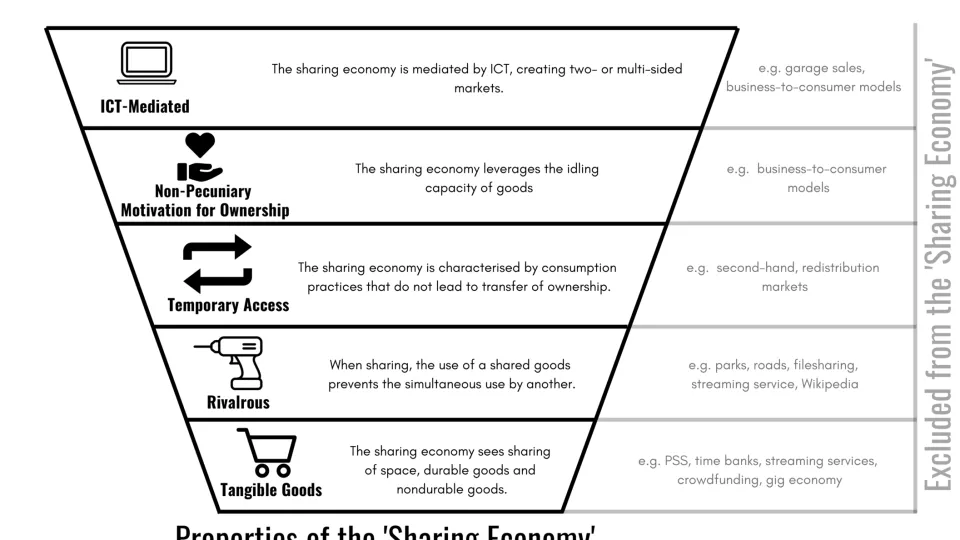The sharing economy is largely promoted to facilitate access over ownership, which proponents of the sharing economy suggest leads to reduced resource consumption. However, the purported sustainability potential of the sharing economy seems often in conflict with the practices ascribed to it. In part, this may be because there exists great semantic confusion surrounding the term ‘sharing economy’, with disparate practices being included under its banner (e.g. sharing, renting, swapping, gifting, buying). This confusion has negative implications on the realisation of its purported sustainability potential.
It was these thoughts that motivated the research conducted by Steven Curtis – PhD Researcher – and Matthias Lehner – Postdoc in sustainable consumption. In January, they published the article Defining the Sharing Economy for Sustainability. They embarked in a year-long effort to analyse the definitions of the sharing economy provided within academic literature in order to synthesise the characteristics of the sharing economy that prioritise sustainability.
Their work proposes the following definition of the sharing economy for sustainability:
The sharing economy is a socio-economic system that leverages technology to mediate two- or multi-sided markets, which facilitate temporary access to goods that are under-utilised, tangible, and rivalrous.
The proposed definition has implications on how the sharing economy is currently conceptualised (see Figure).
- Excludes business-to-consumer models (e.g. Zipcar, Car2Go, DonkeyRepublic) as the platform is not a two- or multi-sided market and does not leverage under-utilised goods. As a result, many carsharing platforms fall outside of our definition of the sharing economy.
- Exclude second-hand and redistribution markets (e.g. Blocket, eBay, second-hand stores) because these exchanges lead to the transfer of ownership instead of facilitating access. While these practices likely lead to more sustainable outcomes, we suggest that these platforms more align with the circular economy (slowing resource loops through increasing intensity of use) instead of the sharing economy.
- Exclude intangible resources such as time, knowledge, software, and streaming content. These resources are often not rivalrous, meaning they can be used by multiple people at the same time. Furthermore, while digitalisation may lead to more sustainable outcomes, there is no clear mechanism for ownership. We also argue that platforms like Netflix, Spotify and Twitter, while discussed in literature, do not embody the spirit of the sharing economy.
- Despite transfer of ownership, consumables are included as part of the sharing economy. Consumables include goods like food and personal care products, which require transfer of ownership in order to use. It is difficult to return food once consumed or to put a spritz of perfume back into the bottle.
This definition guides the research conducted as part of the project Urban Sharing: Sustainability and Institutionalisation Pathways, which received funding from the European Research Council (ERC) under the European Union’s Horizon 2020 research and innovation programme (Grant Agreement No. 771872). The definition of the sharing economy for sustainability is intended to indicate those practices within the sharing economy that may lead to more sustainable outcomes as well as to support those actors that have the sharing economy.
The academic article is published in a special issue called Sharing Economy for Sustainability in the MDPI Journal Sustainability. It is available open access here: https://www.mdpi.com/2071-1050/11/3/567


